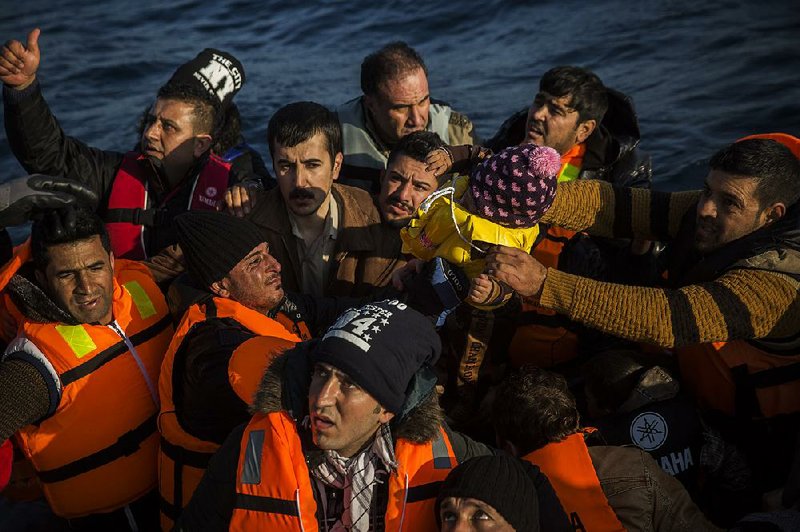ANKARA, Turkey -- Six Afghan children drowned after a rubber dinghy headed to Greece sank off Turkey's Aegean coast Tuesday, the state-run news agency reported.
Five other migrants, including a 12-year-old boy, were rescued from the sea off the resort of Cesme. They were found floating in life jackets, the Anadolu news service said. Rescuers were searching for two other people who were reported missing.
The Turkish coast guard recovered the bodies of the six children. Anadolu didn't report their ages but said one of them was a baby.
The migrants were hoping to make it to the island of Chios from the resort of Cesme, despite bad weather. The boat sank after wooden reinforcements used to fortify the it came apart in the sea, causing the boat to take in water and sink, Anadolu said.
More than 700,000 migrants have crossed into Greece this year, many fleeing conflict in Syria or Iraq. Nearly all have entered the country from Turkey, paying large fees to smuggling gangs who arrange crossings in small, overcrowded boats. Hundreds of people have drowned this year in the Aegean Sea, including dozens of children.
Turkey has stepped up efforts to stop migrants from leaving for Greece by sea. Last week, authorities rounded up around 3,000 migrants and asylum seekers from Iran, Iraq, Afghanistan and Syria in the town of Ayvacik -- north of Cesme -- which is a main crossing point to the Greek island of Lesbos.
The sweep came after Turkey and European Union leaders agreed to re-energize Turkey's long-stalled bid to join the 28-nation bloc and bolster their resolve to deal with the Syrian refugee crisis, although authorities wouldn't say whether the detentions were directly related to the Turkish commitment to help contain the flow of migrants.
The human-rights group Amnesty International criticized last week's detentions, calling them "alarming."
Also Tuesday, a little over a week after promising about $3 billion for Syrian refugees in Turkey, EU member countries are balking at the sums the EU expects them to pay.
Luxembourg Finance Minister Pierre Gramegna led talks between EU finance ministers Tuesday and said the European Commission has been called back to the drawing board "to review certain elements of the budget."
The commission had promised Turkey about $500 million over two years for the "refugee facility," which is meant in part to persuade Ankara to stop tens of thousands of people from leaving for the EU.
Under the commission's plan, Germany would pay more than $500 million, Britain more than $400 million and France about $386 million.
Greece and Cyprus have been refusing to pay.
In Britain, a fiscal watchdog group said Prime Minister David Cameron's plan to curb benefits for EU citizens entering the U.K. will do little to achieve its aim of cutting migrant numbers.
The plan is one of the key changes proposed by Britain in its renegotiation with the bloc. But in testimony Tuesday to lawmakers in London, Office for Budget Responsibility member Stephen Nickell cast doubt on the prime minister's claims that reducing the draw of Britain's welfare system would slow a rate of migration he's called "unsustainable."
"I'm prepared to say any changes to benefit rules are unlikely to have a huge impact on migration flows," Nickell, a labor-market economist, told the House of Commons Treasury Committee.
He refused to make more specific forecasts, stating that "to go further and start trying to analyze the consequences of these things is not in our remit on the basis that it's not a policy."
Britain's request that EU migrants must contribute for four years before they qualify for benefits has proved the most contentious, with some countries branding the proposal discriminatory. The dispute makes it harder for Cameron to reach the renegotiation agreement with EU members he's promised before a stay-or-leave referendum by the end of 2017.
Information for this article was contributed by Suzan Fraser and staff members of The Associated Press and by Svenja O'Donnell of Bloomberg News.
A Section on 12/09/2015



